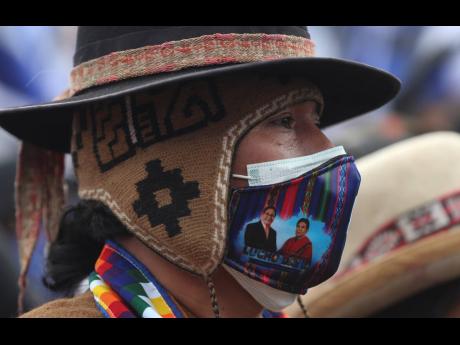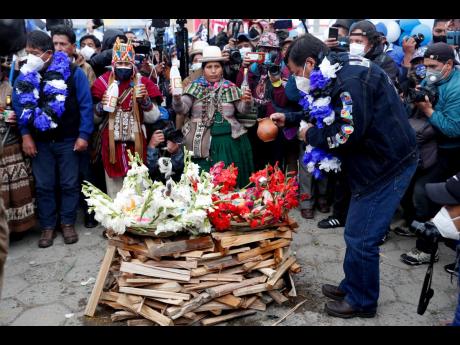Election can help ease year of pain, turmoil
LA PAZ (AP):
For Bolivia, the pandemic has been just part of the turmoil over the past 12 months.
A disputed election, deadly riots. The toppling of Bolivia’s first Indigenous president in what his backers considered a coup. The rise to power of a relatively obscure senator — and her failure to consolidate her presidency.
Now a presidential election on Sunday gives Bolivians at least a chance for a political reset as they struggle with the dramatic costs of the COVID-19 pandemic.
On a per capita basis, few countries have been hit harder than the impoverished, landlocked nation: Nearly 8,400 of its 11.6 million people have died of COVID-19. The election will occur with physical distancing required between masked voters – at least officially, if not in practice.
The leading contenders are former Economy Minister Luis Arce, who led an extended boom under ousted President Evo Morales, and former President Carlos Mesa, a centrist historian and journalist who appeared to finish second to Morales in last year’s annulled vote.
Trailing behind in all the polls have been Luis Fernando Camacho, a conservative businessman who helped lead last year’s uprising, as well as a Korean-born evangelist.
Overshadowing the vote is the absence of Morales, who led Bolivia from 2006 until 2019 and was a key figure in the bloc of leftist leaders who held power across much of South America.
Morales, now exiled in Argentina, was barred from running for the presidency or even the Senate by electoral authorities following his ouster, and he chose Arce as his stand-in for the Movement Toward Socialism party.
A boyhood llama herder who became prominent leading a coca grower’s union, Morales had been immensely popular while overseeing an export-led economic surge that reduced poverty during most of his term. But support was eroding due to his reluctance to leave power, increasing authoritarian impulses, a series of corruption scandals and conservatives’ irritation over his promotion of Indigenous culture and “earth mother” religious observances.
He shrugged aside a public vote in favour of term limits and claimed he’d won at least a narrow first-round victory in the October 2019 presidential vote. But a lengthy pause in updated returns fed suspicions of fraud and nationwide protests broke out. At least 36 died in those protests or others later.
When police and military leaders suggested he leave, Morales resigned – along with most others in the chain of succession – and fled the country. Conservative Senator Jeanne Áñez, perhaps fifth in line, proclaimed herself president and was accepted by the courts.


